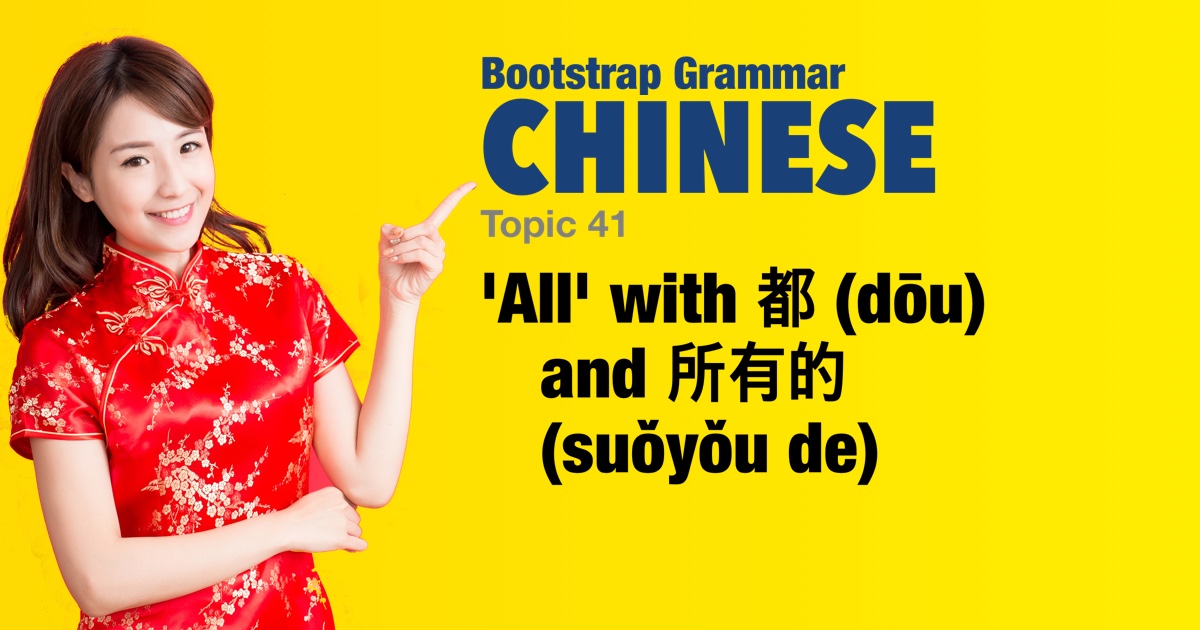Chinese grammar - 'All' with 都 (dōu) and 所有的 (suǒyǒu de) |
|||
|
|||
In Chinese, the adverb 都 (dōu) is used to express 'all'. It should appears after the subject. If the noun is not explicitly plural then it should be prefaced with 所有的 (suǒyǒu de). — 所有的 means 'all of the' or 'together' and is used to emphasize every item in a specific group. |
| Examples: | |
|
我们都要水。
wǒmen dōu yào shuǐ. We all want water.
|
|
|
他们都在上海。
tāmen dōu zài Shànghǎi. They are all in Shanghai.
|
|
|
你们都是中国人吗?
nǐmen dōu shì zhōngguó rén ma? Are you all Chinese?
|
|
|
我们都很累。
wǒmen dōu hěn lèi. We are all tired. |
|
|
你们都想喝咖啡吗?
nǐmen dōu xiǎng hē kāfēi ma? Would you all like coffee? |
|
|
所有的问题都很难。
suǒyǒude wèntí dōu hěn nán. (Together) all of the questions are difficult.
|
|
|
所有的老师都是美国人。
suǒyǒude lǎoshī dōu shì měiguó rén. (Together) all of the teachers are American. |
|
|
所有的桌子都小吗?
suǒyǒude zhuōzi dōu xiǎo ma? (Together) are all of the tables small? |
|
|
所有的学生都在哪里?
suǒyǒude xuéshēng dōu zài nǎlǐ? (Together) where are all of the students? |
|
|
所有的孩子都在公园。
suǒyǒude háizi dōu zài gōngyuán. (Together) all of the children are in the park. |
|
|
所有的餐馆都很贵。
suǒyǒude cānguǎn dōu hěn guì. (Together) all of the restaurants are expensive.
|
|
 |
|




